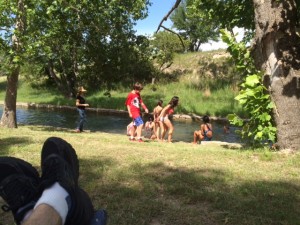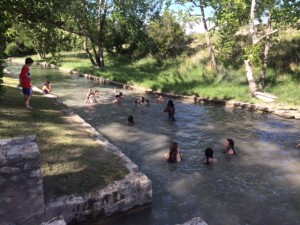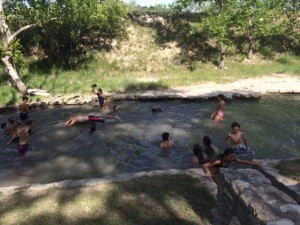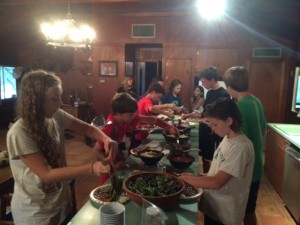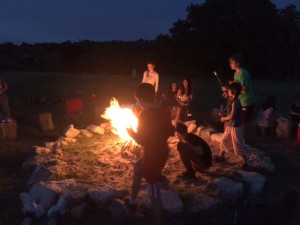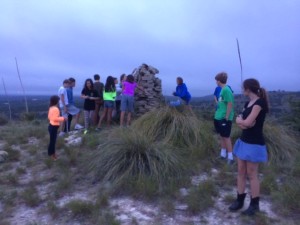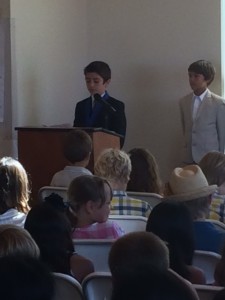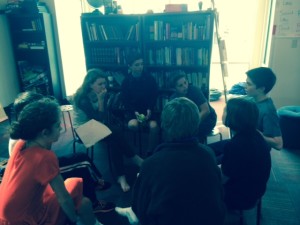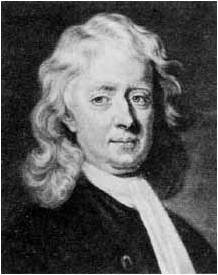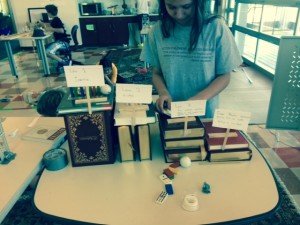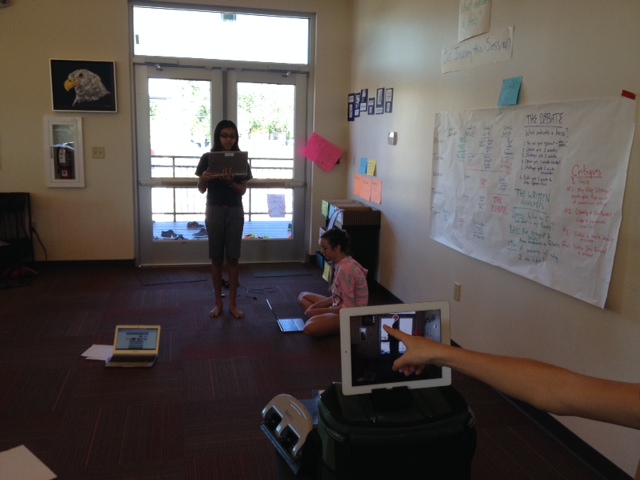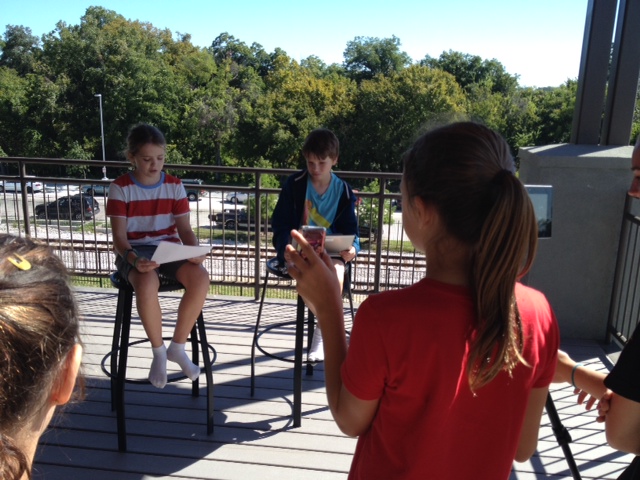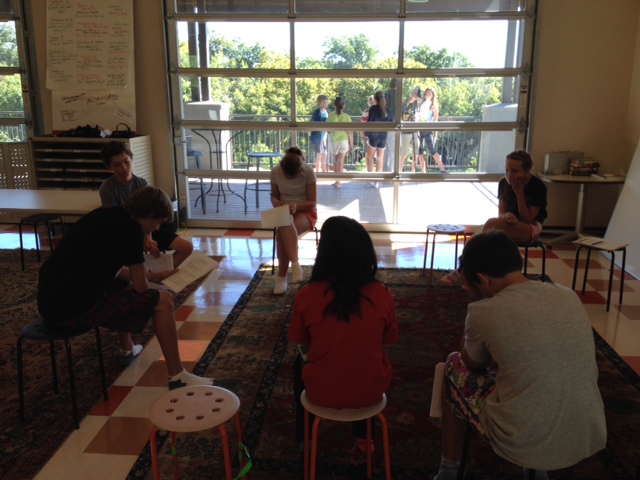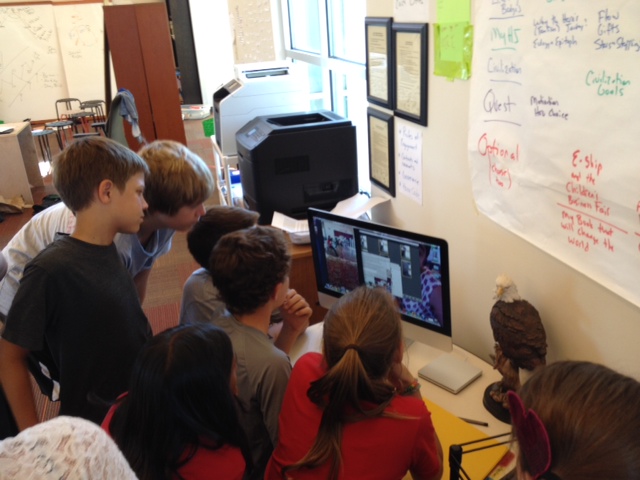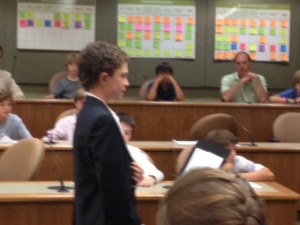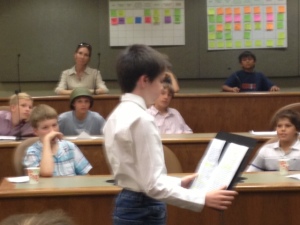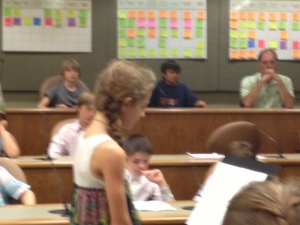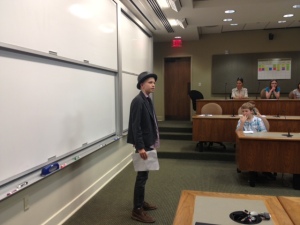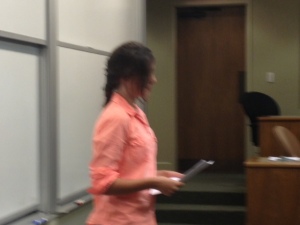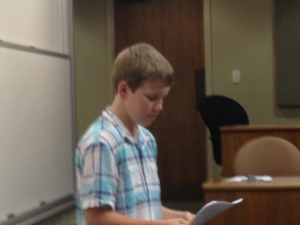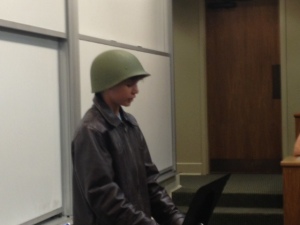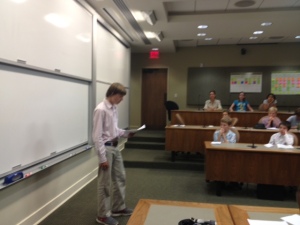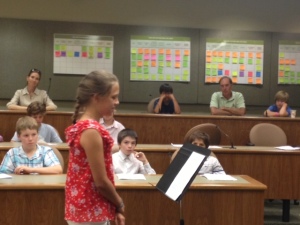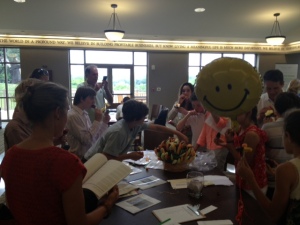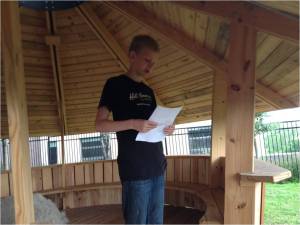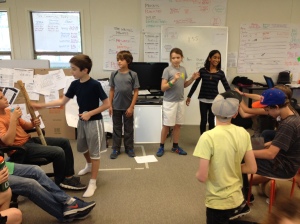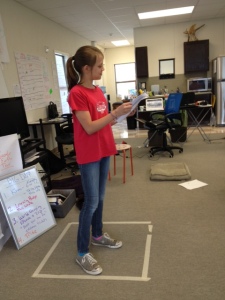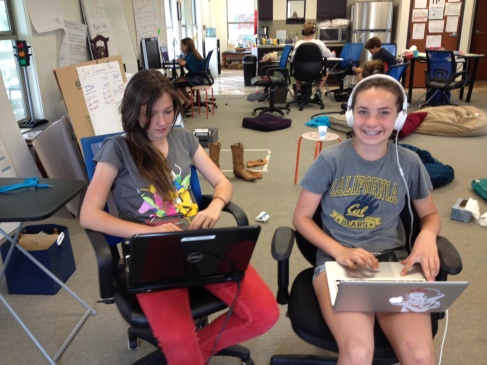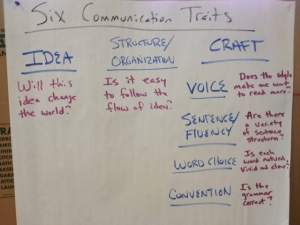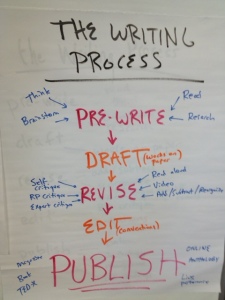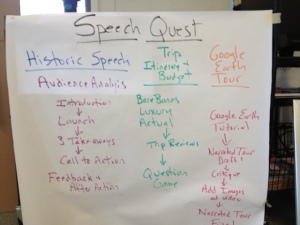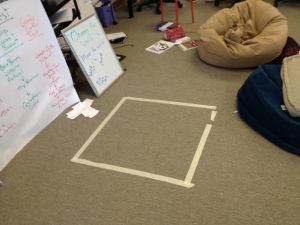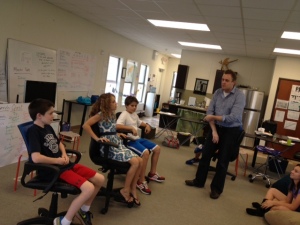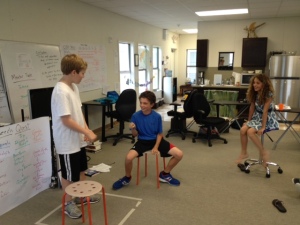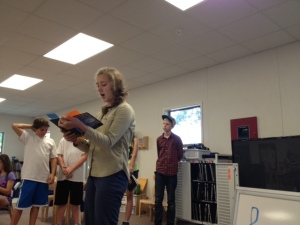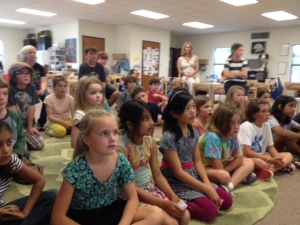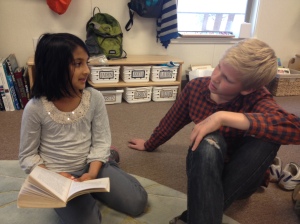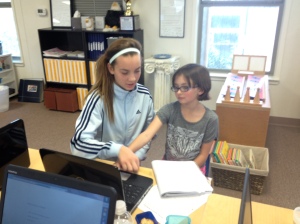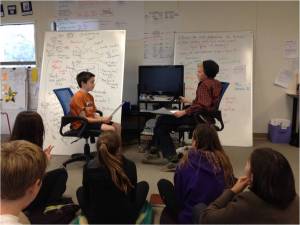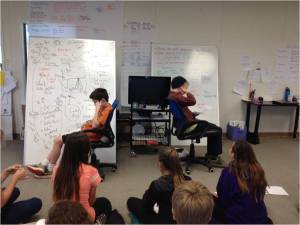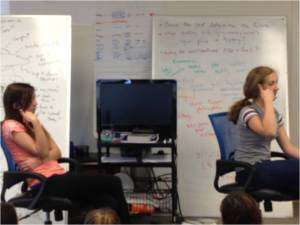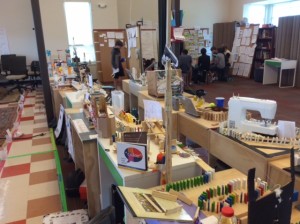
As our end of session celebration, we invited parents and other adults to an exhibition honoring Scientific Heroes, the men and women who improve the world through creating new ideas (like Einstein); new inventions (like Edison) and new innovations (like Ford.)

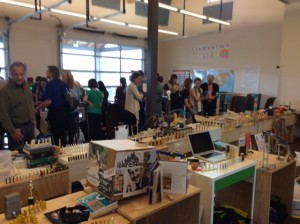
Guests were asked to listen to one minute video pitches, to see which full length Eagle speeches they wanted to attend (there were six speech pods going on simultaneously) and then mingle among the various Rube Goldberg contraptions honoring different scientists. (Here’s a link to some of the video pitchers: http://vimeo.com/user26478640/videos )
The votes of the crowd would decide not only the best pitches, best speeches and best Rube Goldberg contraptions, but also whether the Explorer, Inventor or Innovator team would win the grand prize – a trip on Friday to see a documentary about how Vermeer’s paintings were made.
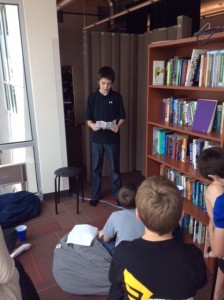
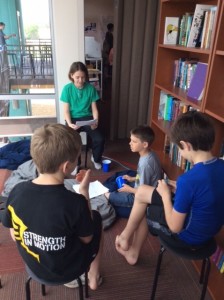
The speeches were terrific, as each Eagle stood in the shoes of a Scientific Hero he or she had chosen, and explained what motivated the hero to persevere through hardships and failures to create a idea, invention or innovation that changed the world.
The votes were tallied. There was a narrow margin between the three teams. Now it was time to trigger the first of twenty four sequential Rube Goldberg devices; for every device that failed, the corresponding team would lose 100 points.
In other words, the entire contest would come down to the reliability of the Rube Goldberg devices. (In the unlikely event that ALL the Rube Goldberg machines worked, everyone would win a trip to see the documentary.)
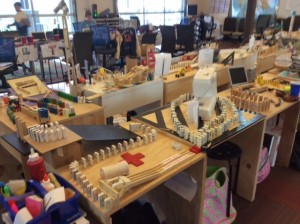
A drum roll; then the big moment. The first machines were flawless; then a vibration from a guest sent one machine off prematurely; then another failure and another. By the end, the Inventors won by a narrow margin.
Some Eagles were crestfallen; they had worked hard on their Rube Goldberg machines, adding redundancies and testing, only to seem them fail because of a quirk or unexpected error.
Of course, the odds were against them. Some Rube Goldberg videos require up to one hundred takes to reach perfection, even with professionals in charge. But the objective wasn’t success, but deep hands-on-learning to better understand what motivates a hero to keep trying, even after public setbacks.
Our Eagles certainly got a real taste of what it feels like to be a real Explorer, Inventor or Innovator. It’s very, very hard work.

